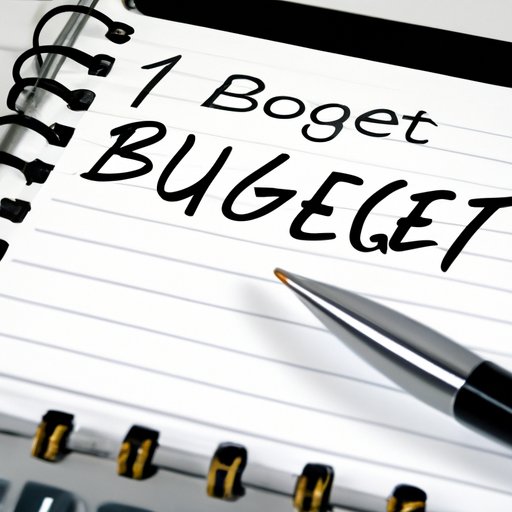7 Tips on How to Save Money on a Tight Budget
Saving money is important, especially when you’re living on a tight budget. Whether you’re trying to save for a big purchase or pay off debt, it can be challenging to know where to start. In this article, we’ll explore 7 tips on how to save money on a tight budget. From tracking your expenses to using coupons and discounts, these tips can help you reach your financial goals.
Tip 1: Track Your Expenses
The first step to saving money is to know where your money is going. Keeping track of your expenses can help identify areas where you’re overspending and make it easier to budget. You can use a notebook, spreadsheet, or budgeting app to track your expenses, depending on your preferences.
One tip for effective expense tracking is to categorize your expenses. This can help you identify areas where you’re spending too much money. Common categories include housing, transportation, food, and entertainment. By tracking your expenses, you can identify opportunities for savings and adjust your spending habits accordingly.

Tip 2: Make a Budget
Creating a budget is essential for saving money. A budget helps you prioritize your spending and makes it easier to save for your financial goals. Start by taking your monthly income and subtracting your necessary expenses, such as rent, utilities, and groceries.
Next, allocate the remaining money to other expenses and savings. You can use a budgeting app or spreadsheet to help you create your budget and track your expenses. It’s important to review your budget regularly and make adjustments as necessary.
Tip 3: Cut Down on Eating Out
Eating out can be a significant expense, especially if you do it frequently. Instead of eating out, consider cooking at home more often. Not only is it typically healthier, but it’s also less expensive. You can also pack your lunches for work or school instead of eating out.
If you do decide to eat out, consider going during happy hour or using coupons and discounts. Many restaurants offer specials during certain times or days of the week.
Tip 4: Shop Smart
Grocery shopping can be a big expense, but there are ways to save money. One tip for saving money on groceries is to plan your meals and make a shopping list before you go to the store. This can help you avoid buying items you don’t need and prevent food waste.
You can also buy generic brands instead of name brands. Many generic brands are just as good as name brands but are less expensive. Additionally, look for sales and use coupons to save money on groceries and other essentials.
Tip 5: Lower Energy Costs
Reducing your energy costs can help you save money on your monthly bills. Simple changes like turning off lights when you leave a room, using energy-efficient light bulbs, and adjusting your thermostat can all make a difference.
You can also lower your energy costs by using power strips and unplugging electronics when they’re not in use. This can help prevent “vampire power,” which is energy that’s consumed by devices even when they’re turned off.
Tip 6: Look for Free and Low-Cost Activities
Entertainment can be expensive, but there are plenty of free and low-cost activities that you can enjoy. Look for community events, museums, and parks in your area. You can also take advantage of free trials for streaming services or borrow books from the library instead of buying them.
By finding low-cost or free activities, you can still have fun without breaking the bank.
Tip 7: Use Coupons and Discounts
Finally, using coupons and discounts can help you save money on everything from groceries to clothing. Look for coupons in your local newspaper or online coupon websites. You can also sign up for store newsletters to get notifications about sales and discounts.
When using coupons and discounts, make sure to read the fine print and check for expiration dates. It’s also important not to buy things you don’t need just because they’re on sale.
Conclusion
Saving money on a tight budget can be challenging, but it’s possible by following these 7 tips. By tracking your expenses, making a budget, cutting down on eating out, shopping smart, lowering energy costs, looking for free and low-cost activities, and using coupons and discounts, you can reach your financial goals and still have fun.
Remember, it’s important to review your budgets regularly, make necessary adjustments to your spending, and stay motivated to achieve your goals. With persistence and effort, you can save money and improve your financial well-being.
